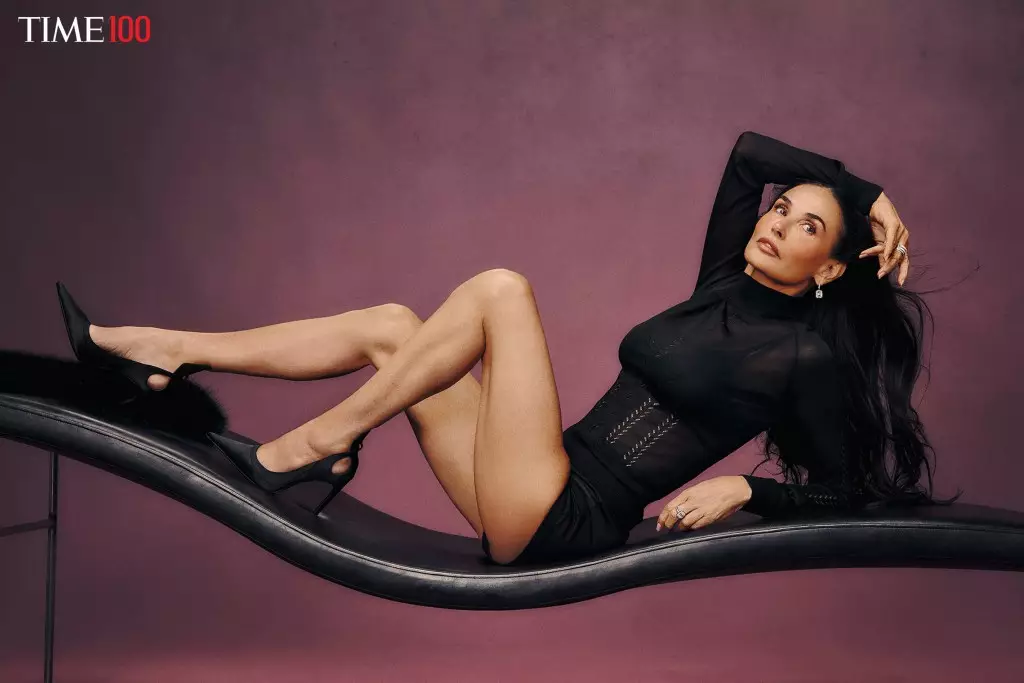Time magazine’s annual compendium of the world’s 100 most influential people never fails to spark debates, prompt discussions, and occasionally, provoke eye-rolls. This year, the entertainment industry’s presence feels overwhelming, featuring not just household names but also the occasional eyebrow-raising inclusion. While some may commend this celebration of artists wielding cultural power, one has to wonder: does the concentration of celebrities on this list overshadow real movers and shakers in global affairs?
What stands out in this iteration is the plethora of entertainers: from Demi Moore to Snoop Dogg, many individuals represent not just their arts, but a certain lifestyle, a brand of influence that often veers towards the superficial. What does it mean for societal evolution when pop-culture figures like Ed Sheeran and Scarlett Johansson are positioned alongside entrepreneurs and activists? It seems less a recognition of genuine societal contributions and more a testament to the allure of fame. The intersection of entertainment and societal influence can often morph into a complex narrative that prioritizes celebrity status over substantive change.
Guest Contributors: The Echo Chamber
Equally notable is Time’s practice of pairing each influencer with guest contributors, ranging from Will Ferrell to Shonda Rhimes. While this might lend an air of legitimacy to the write-ups, it essentially creates an echo chamber of Hollywood validation. The opinions penned by peers tend to ring hollow when scrutinized closely. Do we really need the adoration of a fellow star to appreciate Scarlett Johansson’s impact? While the allure of celebrity endorsements can amplify an artist’s influence, it also raises a troubling question: Are we merely slapping a seal of approval on privilege without critically examining its implications?
In a world increasingly dominated by celebrity culture, this particular assembly of influential figures skews our understanding of ‘impact.’ It reinforces the idea that being widely recognized equates to being an agent of change, which couldn’t be further from the truth. The continuous parade of entertainers casts a shadow over those whose foundational work merits acknowledgment, such as grassroots activists or innovators in education and health. Why, for instance, are we celebrating Snoop Dogg’s multi-decade career while overlooking educational leaders striving against tremendous odds?
Redefining Influence
The issue becomes even more problematic when we consider the historical context of influence. The figures who have graced this list multiple times—like Donald Trump or Elon Musk—illustrate a consistent pattern of prioritizing sensationalism over substance. Are these the figures we truly want to celebrate as our global influencers? It stands to reason that influence should be about making a tangible difference, yet Time’s selection seems more concerned with visibility than meaningful contributions.
We stand at a crossroads where the metrics of influence need to be re-evaluated. Perhaps it’s time to shift our admiration to those genuinely altering the fabric of society—not just through catchy lyrics or blockbuster films, but through acts of bravery, ingenuity, and sustained impact. If we continue to elevate pop icons over those tirelessly working to enact change, we risk losing sight of what influence truly means. The challenge lies not only with Time magazine but with all of us: to seek and celebrate authentic influence that shapes a better world beyond the glitzy facade of celebrity culture.

Leave a Reply